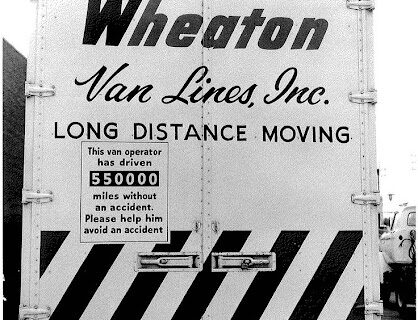
Many homeowners are drawn to homeowners associations, or HOAs, because they promise high property values, clean, safe communities and shared responsibilities. But just as many homeowners are wary of the idea—after all, HOAs can have a reputation for steep dues, unfair leadership and excessive, arbitrary rules.
So, what’s a prospective homebuyer to believe? In this guide, we’ll help sort fact from fiction to arrive at a comprehensive picture of the pros and cons of homeowners associations. At Wheaton World Wide Moving, we aim to make moving easy every step of the way, from planning to unpacking. If you’re planning a household move, our agents can help guide you through these important details. Contact us or get an estimate today!
What Is an HOA and What Does It Do?
An HOA, or homeowners association, is an organization that establishes and enforces rules for a community, subdivision or building complex and manages shared amenities like pools and parks. HOAs are governed by an HOA board, which is typically a voluntary or elected group of neighbors.
HOA boards have many responsibilities:
- Creating and enforcing governing documents like bylaws and covenants, conditions and restrictions (CC&Rs)
- Maintaining common areas
- Proposing and managing initiatives and projects
- Creating an annual budget and managing due money
- Hosting regular meetings that are open to the community
Breaking Down HOA Fees and Dues
If you own a home in an HOA community, it’s basically guaranteed that you’ll pay regular dues or fees. These typically cover maintenance of common areas, landscaping, large repairs, security, amenities and reserve funds for emergency projects. HOA dues can be charged monthly, quarterly, annually or on another basis as determined by your HOA board.
Occasionally, you may need to pay a separate special assessment fee on top of your usual dues to cover an unexpected major expense that’s above the HOA’s budget or reserve—say a major storm damaged the community building’s roof or the pool needs a serious repair. And if your HOA’s reserve is underfunded, it’s common for monthly dues to increase to return it to a healthy state.
Unfortunately, HOA fees are usually not tax-deductible, but check with a tax professional in your area to be sure.

HOA Rules and Regulations
Each HOA community has its own unique rules and regulations. On the less-strict end, you can expect parking restrictions, waste disposal guidelines and amenity rules. In more comprehensive communities, you may find rules around paint colors, landscaping, pet ownership, holiday decor and even home occupancy.
Be sure to read the CC&Rs and other governing documents to get familiar with your prospective community’s HOA rules before signing on the dotted line.
The Consequences of Noncompliance
Your HOA’s rules are typically enforced by the board—so if your grass grows longer than the allotted length, expect a knock on the door or a letter in your mailbox! Repeat violations can result in fines, loss of amenity access or legal action.
If you don’t pay HOA dues, you may face late fees, collection agencies, liens and even foreclosure. These steps will likely be outlined in your HOA’s governing documents, which is another great reason to review them before moving in.
Questions to Ask Before Buying in an HOA Community
In addition to reviewing HOA bylaws, ask these questions before making your big move:
- What are the current monthly fees?
- What’s included in the monthly dues?
- Have there been recent special assessments?
- Are there any known upcoming rule changes?
- Is the HOA reserve well-funded?
- Can you rent out your property if needed?
Pros and Cons of Living in an HOA
There are many reasons homeowners choose to live in an HOA community, from amenities to well-maintained neighborhoods to shared expenses to higher property values. Many homeowners find value in having major repairs or landscaping taken care of with minimal effort on their part, and simply appreciate the sense of living in a well-maintained community.
On the other hand, some homeowners resist being “told what to do” about property they own, and crave more personal control. And with the fees HOAs charge, on top of your mortgage, taxes and other home ownership costs, HOA communities can quickly sap your budget.
Whether the pros outweigh the cons will depend on your finances, lifestyle and your likelihood of using shared amenities. Take the time to consider these factors before making a decision about your next home.

Moving Into an HOA Community: Final Thoughts
Life in an HOA community can offer structure and benefits—but only if you understand the commitments and fees you’re signing up for. Be sure to ask the right questions and read the fine print before closing. And if you feel confident you’ve found your perfect fit, call the experts at Wheaton World Wide Moving to make your move simple and stress-free. We have decades of experience helping families settle into their new homes, with services ranging from packing to storage-in-transit to specialty item moving, ensuring a seamless transition.
Ready to make your move? Get a free estimate from Wheaton and move with confidence.



